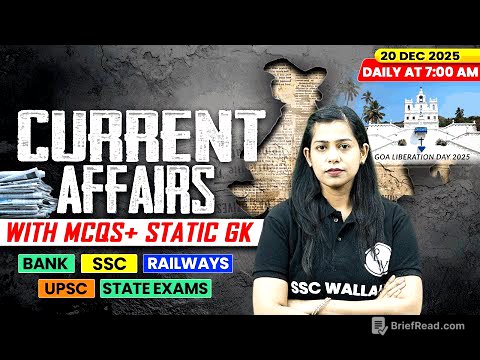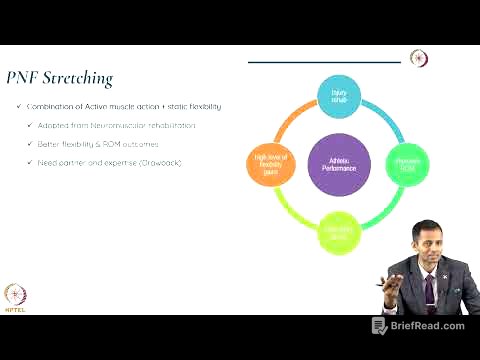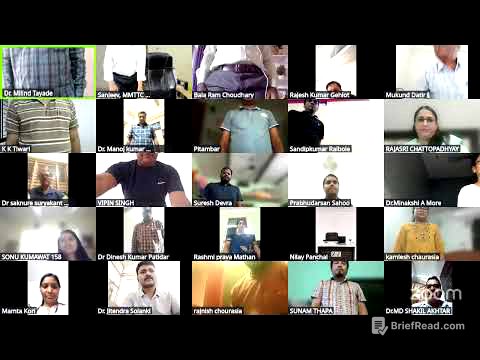TLDR;
This dialogue on RRI Banda Aceh discusses the theme of National Sports Day, focusing on sports as a medium for children's expression and achievement. It features Mr. Too Muhammad Khairunif, Head of Youth Affairs at the Banda Aceh City Youth and Sports Office, and Teku Rajul Radityya Alkalid, an Acehnese fencing athlete. The discussion covers the support provided by the Banda Aceh City Youth and Sports Agency, the experiences of young athletes, the challenges in fostering children's interest in sports in the digital era, and the importance of collaboration between schools, communities, and the government to create a sustainable sports ecosystem.
- Banda Aceh City government prioritizes sports development with programs for athlete recruitment, facilities, and competitions.
- Early sports involvement fosters discipline, sportsmanship, teamwork, and self-confidence in children.
- Collaboration between schools, communities, and government is crucial for creating a supportive sports environment.
- Challenges include digital distractions, limited parental support, and the need for fair selection processes.
- Support for underprivileged talented children is provided through collaborations with education offices, sports organizations, and the private sector.
Introduction and Guests [0:42]
The host, Amar, opens the dialogue on RRI Banda Aceh, focusing on the theme of National Sports Day and sports as a space for children's expression and achievement. The guests are introduced as Mr. Too Muhammad Khairunif (Mr. Popon), Head of Youth Affairs at the Banda Aceh City Youth and Sports Office, and Teku Rajul Radityya Alkalid (Rajul), an Acehnese fencing athlete. The host greets the guests and transitions into discussing the support provided by the Banda Aceh City Youth and Sports Agency for children in sports.
Support from Banda Aceh City Youth and Sports Agency [2:17]
Mr. Popon explains that the Banda Aceh City government is highly concerned with sports development, as demonstrated by the sixth mission in the RPJM of Banda Aceh City for 2025-2029, which focuses on empowering youth and advancing sports. The agency has three priority programs for early-age sports development: athlete recruitment and development from grade 4 of elementary school to grade 2 of high school, providing adequate and national standard facilities that are child-friendly, and organizing various tournaments specifically for early-age athletes to ensure selection and coaching processes. These tournaments aim to foster competitiveness and sportsmanship among young athletes.
Rajul's Early Fencing Experience [6:25]
Rajul shares that he started fencing in 4th grade, influenced by his father, who was also a fencing athlete. His father taught him at home, and he began training seriously in 6th grade. Rajul views fencing as a medium of self-expression, helping him to cope with tiredness or sadness. He emphasizes the joy of practicing and competing with friends.
The Role of Sports in Character Building [8:27]
Mr. Popon discusses how sports serve as a positive outlet for children's potential and play a crucial role in building their character. He highlights that sports instill discipline, perseverance, and obedience to rules from an early age. Additionally, sportsmanship, teamwork, communication, responsibility, and self-confidence are cultivated through sports activities, which are essential for children's social behavior in the future.
Collaboration Between Schools and Community [11:48]
Mr. Popon emphasizes the importance of collaboration between schools and the community in developing early childhood sports. He mentions that the vision of Aceh is a collaborative city, requiring cooperation between stakeholders, especially schools and education offices. Schools are expected to design physical education programs that are fun and motivating for children, create sports-focused curricula, provide adequate sports facilities, and encourage teachers to support their students in sports. The community, particularly parents, should emulate a healthy and active lifestyle and motivate their children to participate in sports.
Rajul's Introduction to Fencing Weapons [16:13]
Rajul recounts his introduction to fencing weapons by his father, who showed him his old fencing equipment. He explains the three types of fencing weapons: kloret, Degen, and sabel, with his father initially introducing him to Degen. Rajul started competing in open circuits from 6th grade, facing opponents who were older and more experienced. Despite initial fear, he approached the competitions with a playful attitude.
Challenges in Fostering Children's Interest in Sports [23:37]
Mr. Popon discusses the challenges in fostering children's interest in sports in the digital era, where children are often drawn to gadgets and online games, leading to a reluctance to exercise outdoors. He notes the difficulty in securing athletes for team sports due to children's decreased communication and interaction with neighbors. He emphasizes the role of parents in limiting gadget use and encouraging offline activities.
Supporting Talented Athletes and Collaboration [28:01]
Mr. Popon outlines the support provided to talented athletes, including mapping and data collection, tournament competitions, training, and facilities. He mentions the importance of sustainable competitions and collaboration between Dispora (Youth and Sports Agency) and Koni (National Sports Committee). He also highlights the need for collaboration between schools, sports organizations, and the private sector to record and foster potential young athletes.
Rajul's Challenges and Coping Mechanisms [33:55]
Rajul shares the challenges he faces, such as injuries, defeats, poor performance, and pressure to perform well. He copes by practicing with focus, sharing his concerns with coaches and family, and seeking their support and motivation. He clarifies that while his father introduced him to fencing, he now has his own coach. Rajul has participated in numerous competitions and has won around 14 medals.
Experiences and Sportsmanship [37:14]
Rajul shares his experiences in competitions, noting the difference in mentality as he gained more experience. He emphasizes the importance of sportsmanship, maintaining friendships with opponents outside of matches. He acknowledges the facilities and support he has received from Dispora and his family.
Support for Underprivileged Children [40:12]
Mr. Popon discusses the support available for underprivileged children with sports talent, including scholarships and collaborations with the Aceh Education Office and sports organizations. He mentions efforts to place talented children in subsidized vocational schools and provide them with the means and facilities to develop their potential. Collaboration with the private sector is also sought to provide scholarships and support.
Final Messages and Encouragement [44:07]
Rajul encourages his friends to try and practice sports, seek support from parents, friends, and coaches, showcase their abilities, and never give up. Mr. Popon urges the community to work together to foster healthy living, with parents setting an example for their children and supporting their potential. He advises children not to be afraid to try and to make exercise an investment in the future. The host concludes the dialogue, thanking the guests and listeners for their participation.









